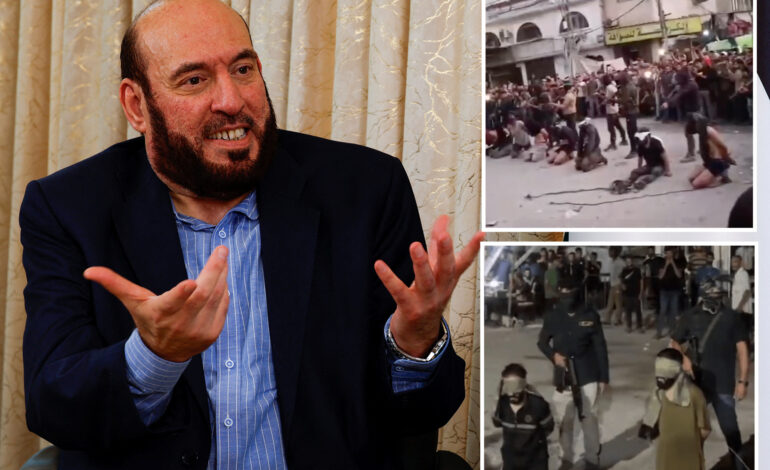Hamas Justifies Public Executions, Complicates Peace Talks

Hamas publicly defended its recent executions of Palestinians, escalating tensions surrounding ongoing peace negotiations with Israel. The group, which has refused to disarm, announced its stance shortly after carrying out these killings in Gaza on March 4, 2024. This decision has raised significant concerns regarding the fragile peace process that has been facilitated by the United States.
In a statement to Reuters, Hamas politburo member Mohammed Nazzal described the executions as “exceptional measures” necessary to address what he termed criminal behavior. He stated that those executed were guilty of murder and suggested that such actions were part of maintaining order within Gaza. The brutality of these public executions has drawn international condemnation, with critics highlighting the extreme violence involved.
The issue of disarmament remains a critical point of contention in the ongoing negotiations. Israel has demanded that Hamas relinquish its arms, a condition that has not been met according to Israeli officials. Nazzal’s refusal to commit to disarmament complicates the situation further, as both sides strive for a lasting resolution following the initial phase of a cease-fire agreement.
Israeli Prime Minister Benjamin Netanyahu responded sharply to Nazzal’s comments, asserting that Hamas is failing to meet its obligations under the cease-fire agreement. “Hamas is supposed to release all hostages in stage one. It has not,” a statement from Netanyahu’s office emphasized. “They have not adhered to the 20-point plan. They are running out of time.”
Nazzal, speaking from Doha, expressed Hamas’ willingness to accept a five-year cease-fire aimed at rebuilding Gaza. He indicated that such a cease-fire would require guarantees and a vision for future statehood, which he described as offering “horizons and hope.” This position underscores a significant divergence from President Trump’s previous proposals regarding Gaza, particularly concerning the governance of the territory and the status of Hamas’ weapons.
As the peace negotiations continue, the implications of Hamas’ violent actions and its refusal to disarm could pose significant challenges to establishing a sustainable peace in the region. The international community is closely monitoring the situation, keen to see whether diplomatic efforts can overcome these escalating tensions.






